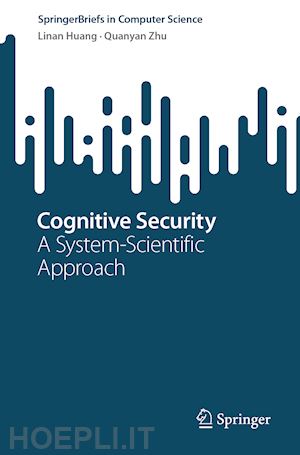

Questo prodotto usufruisce delle SPEDIZIONI GRATIS
selezionando l'opzione Corriere Veloce in fase di ordine.
Pagabile anche con Carta della cultura giovani e del merito, 18App Bonus Cultura e Carta del Docente
This book presents the latest research in cognitive security, a rapidly emerging field that addresses the vulnerabilities in human behavior and cognition that can lead to Cyber-Physical Systems (CPS) compromise. This book demonstrates that as adversaries increasingly use manipulative and deceptive information to disrupt human cognitive processes, including sensation, attention, memory, and mental operations, humans are misled into fallacious reasoning and manipulated decisions that can lead to system-level meltdown. Cognitive security aims to protect humans from the exploitation of cognitive vulnerabilities, help them make informed decisions that are free from manipulation and undue influence, and mitigate the aggravating risk in the ensuing steps of the attacker’s kill chain.
This book offers solutions that work across different fields, such as psychology, neuroscience, data science, social science, and game theory, to deal with cognitive threats. It guides the reader through the core ideas with figures, real-life examples, and case studies. Moreover, it formally defines all research questions, presents the results using mathematical theorems and proofs, and obtains insights through numerical validation. This book provides a self-contained and brief overview of essential system-scientific tools for modeling, analyzing, and mitigating cognitive vulnerabilities. The concepts of human cognitive capacities and cognitive vulnerabilities are formally discussed, followed by two case studies in the scenarios of reactive and proactive attention vulnerabilities. This book provides insights and applications on this transdisciplinary topic, with the goal of motivating future research in this emerging area and pushing the frontier of human-technology convergence. This book is a valuable reference for researchers and advanced-level students studying or working in cognitive security and related fields. It is also useful for decision-makers, managers, and professionals working within these related fields.











Il sito utilizza cookie ed altri strumenti di tracciamento che raccolgono informazioni dal dispositivo dell’utente. Oltre ai cookie tecnici ed analitici aggregati, strettamente necessari per il funzionamento di questo sito web, previo consenso dell’utente possono essere installati cookie di profilazione e marketing e cookie dei social media. Cliccando su “Accetto tutti i cookie” saranno attivate tutte le categorie di cookie. Per accettare solo deterninate categorie di cookie, cliccare invece su “Impostazioni cookie”. Chiudendo il banner o continuando a navigare saranno installati solo cookie tecnici. Per maggiori dettagli, consultare la Cookie Policy.